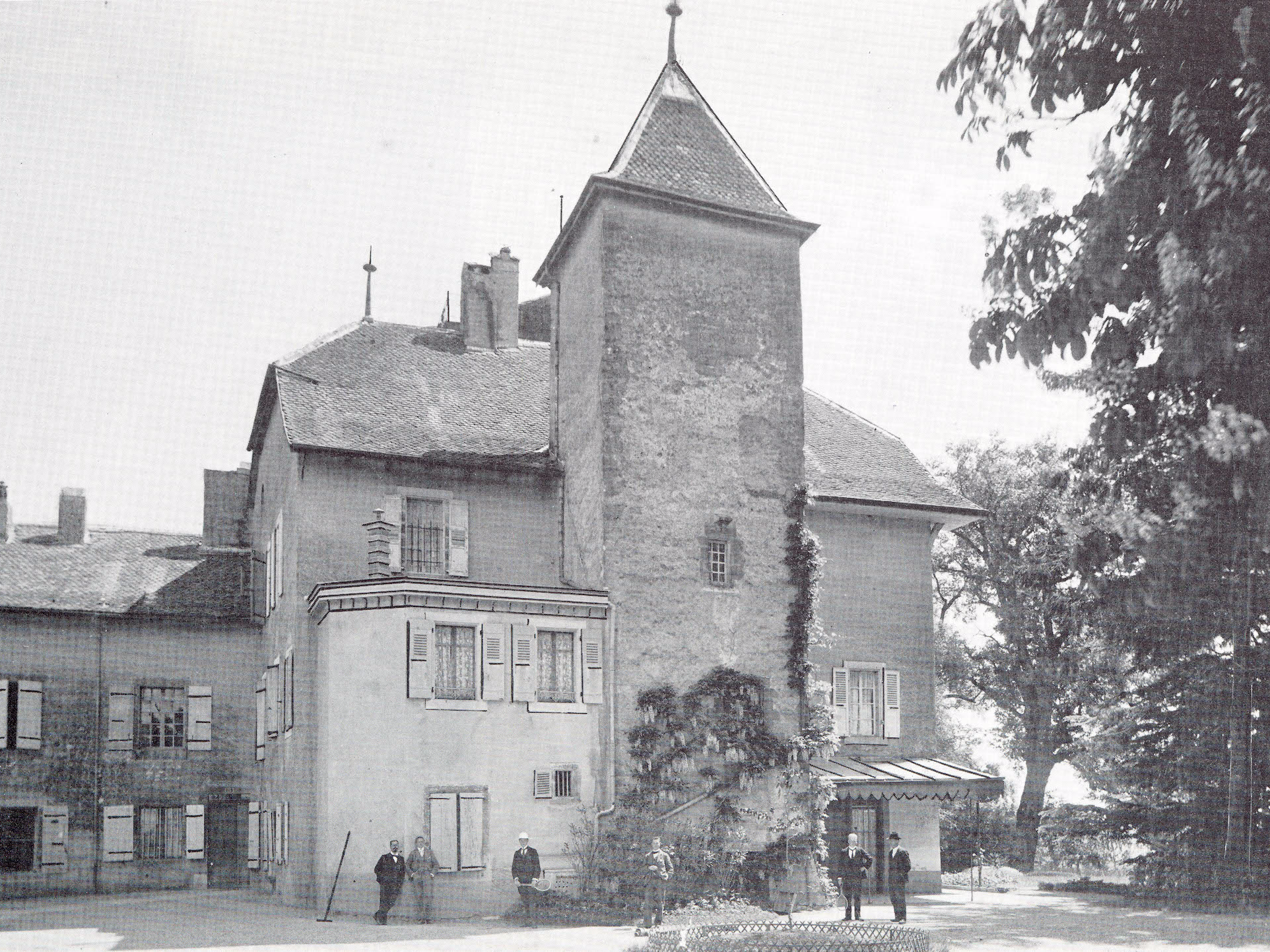Switzerland’s Institut Le Rosey is the most expensive school in the world.
Boasting two beautiful campuses in two locations – the spring/summer campus in the 14th-century Château du Rosey estate in Rolle, and, in the winter, chalets in the ski resort of Gstaad – it costs 108,900 Swiss francs (about £87,300) a year in tuition fees.
Institut Le Rosey’s famous alumni reportedly include King Albert II of Belgium, the Shah of Iran, Prince Rainier of Monaco, and King Farouk of Egypt.
The school says 30% of its students join universities ranked in the top 25 in the world – including those in the Ivy League, MIT, and Oxbridge – after graduating.
So what’s all the fuss about?
"Evidently, we are Switzerland's oldest international boarding school. We have a certain weight that goes through the name because of families that have been here before," Felipe Laurent, an alumnus and Le Rosey spokesman, told Business Insider. Both Laurent and his older sister graduated from Le Rosey - he spent five years at the school, while she studied for three.
"I think that some families are looking for that," he added, "in that they might have studied here and so they want their children to continue that sort of legacy."
We spoke to Laurent to find out what really goes on behind its doors - and were offered an exclusive look inside. Scroll to see inside the most expensive school in the world.
Note: The Instagram images below were published by accounts not managed by Le Rosey.
This is the main campus of Institut Le Rosey, the most expensive school in the world. It's in Rolle, halfway between Geneva and Lausanne, on a 28-hectare estate.
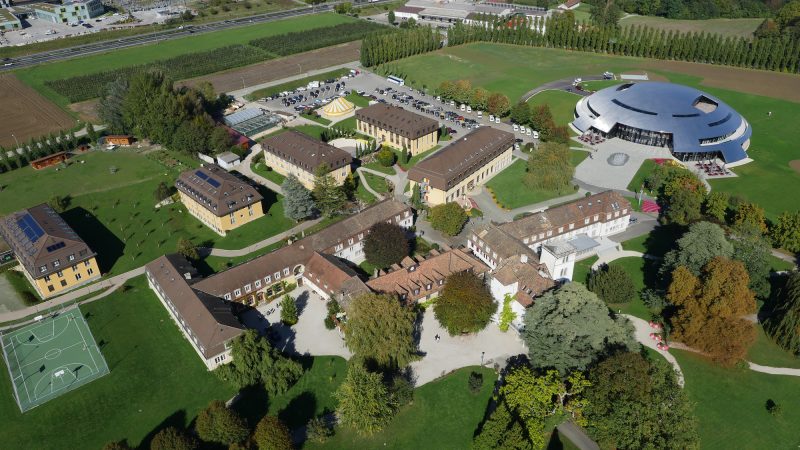
Tuition is 108,900 Swiss francs (about £87,300), though just about everything — excluding school trips but including pocket money administered by the staff — is included.
http://instagr.am/p/m-L53qF8H1
"There's different levels of pocket money according to the age of the student," Laurent told Business Insider. "Evidently, a 10-year-old will not receive the same amount as a 17-year-old."
The Château du Rosey, below, was built in the 14th century, and the school was founded in 1880.
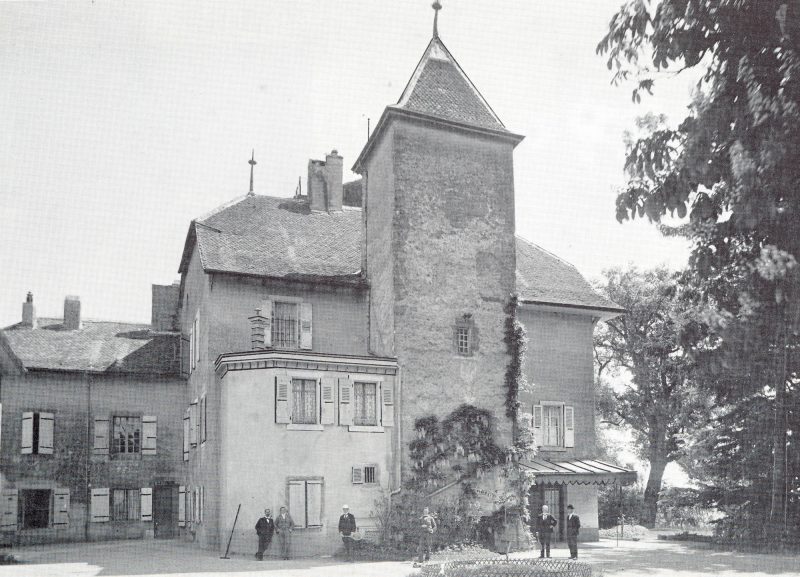
Here's the Château last summer. This is where students spend their fall, spring, and summer terms.
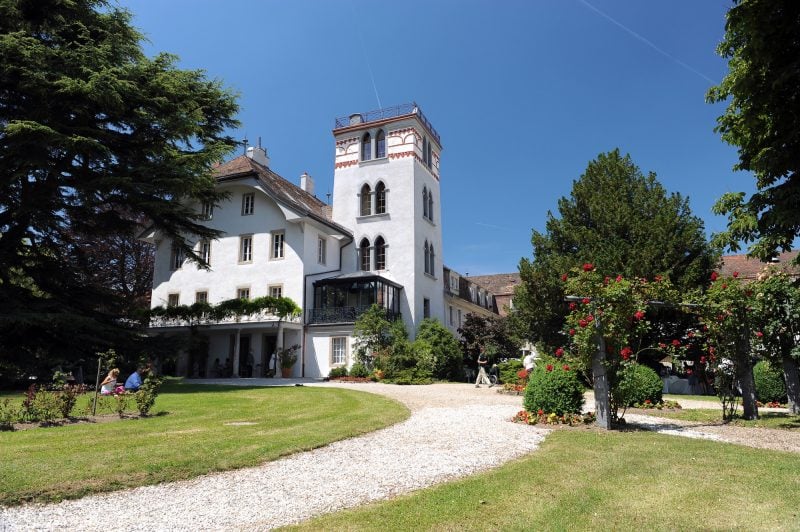
The grounds are gorgeous.
http://instagr.am/p/BLBzJxiDFAq
There are both indoor and outdoor pools at the summer campus.
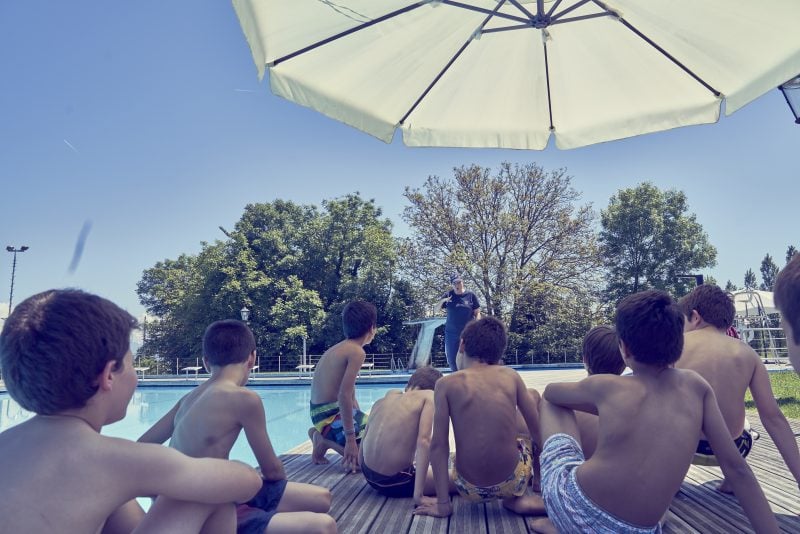
It looks more like a family holiday destination than a school.
http://instagr.am/p/BKKbNSxBquy
Whatever class this is, sign us up.
http://instagr.am/p/BJNbEYrBCNS
Students arrive at the main campus in September, and have breaks in October and December. Then, after Christmas, they head to a campus in the quaint town of Gstaad, a tradition for Le Rosey since 1916.
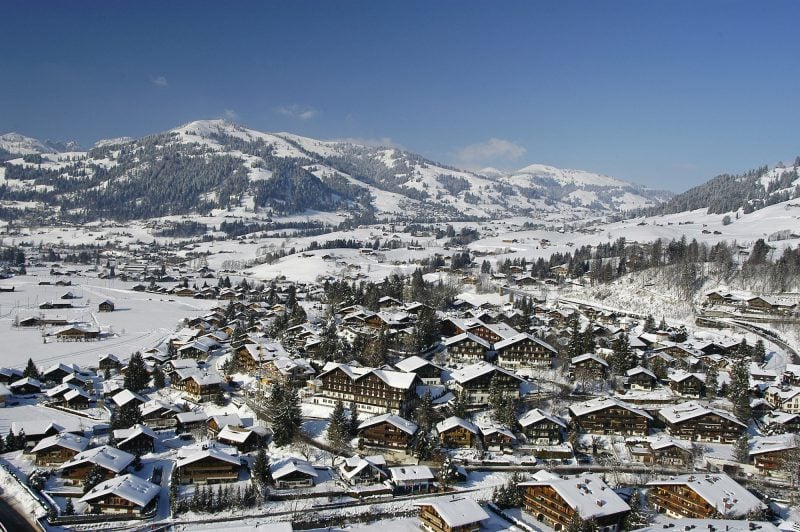
Student are able to ski four times a week, so to make up for this, they have Saturday morning lessons.
http://instagr.am/p/zCrqOhDA8W
"The Gstaad term is quite an intense term," Laurent said. "I mean eight to nine weeks in the Swiss Alps, I think it would tire anybody out."
After a break in March, they head back to the main campus in April until June.
"It's important to have that break after that and then to come back to a different campus, with a fresh mind, to continue the academic year," Laurent added.
At the end of June, they are off for the summer holidays.
There are currently 400 students between the ages of eight and 18 at Le Rosey. They come from 67 countries and there is a perfect gender split. They're expected to be bilingual and can study up to four languages at a time, including Dzongkha or Swahili.
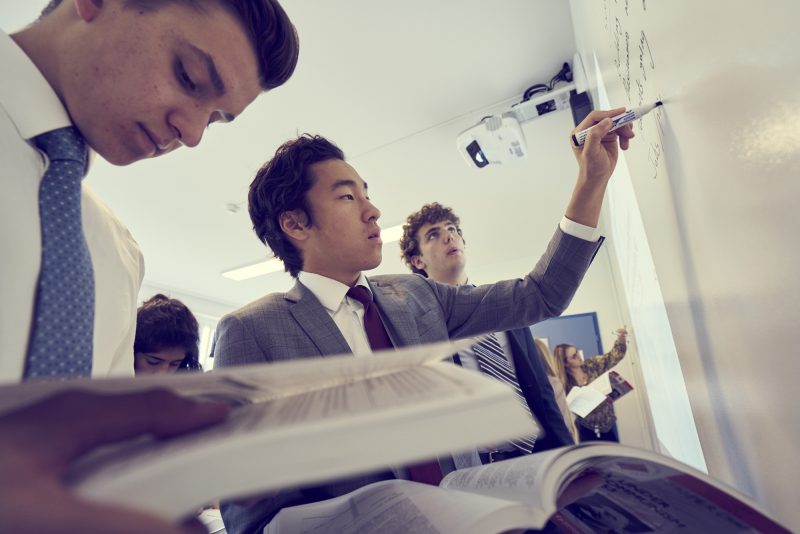
Despite its steep tuition fee, there are four applicants for every available spot.
"We look for students that are brilliant academically, but that are also interesting children and especially that we think that we have potential," Laurent said. "Whether it's to progress even more in their academics, or potential in that we think they will be future leaders, or progress and potential in that we think they will be future sportsmen."
The library has books in over 20 languages.
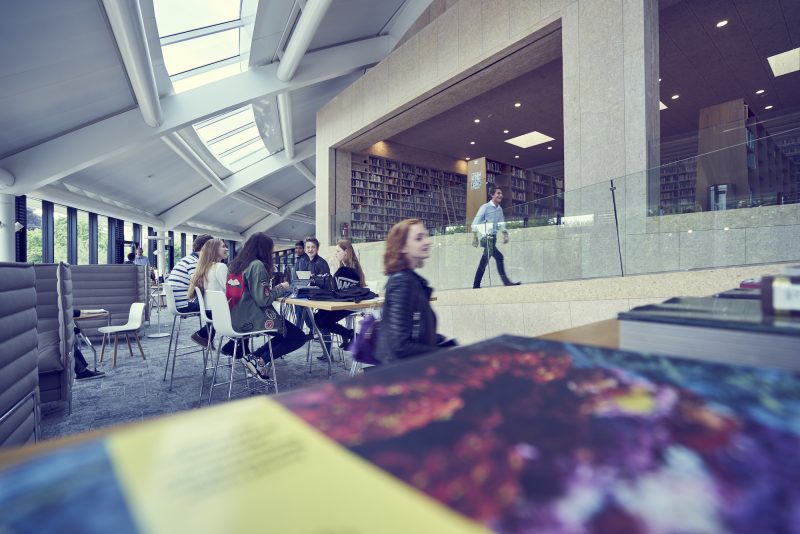
A full Le Rosey education is split into four different stages: Juniors, Cadets, Jeunes Seniors, and Seniors. At the high school level, students choose between the Baccalauréat Français or the International Baccalaureate (IB) Diploma.
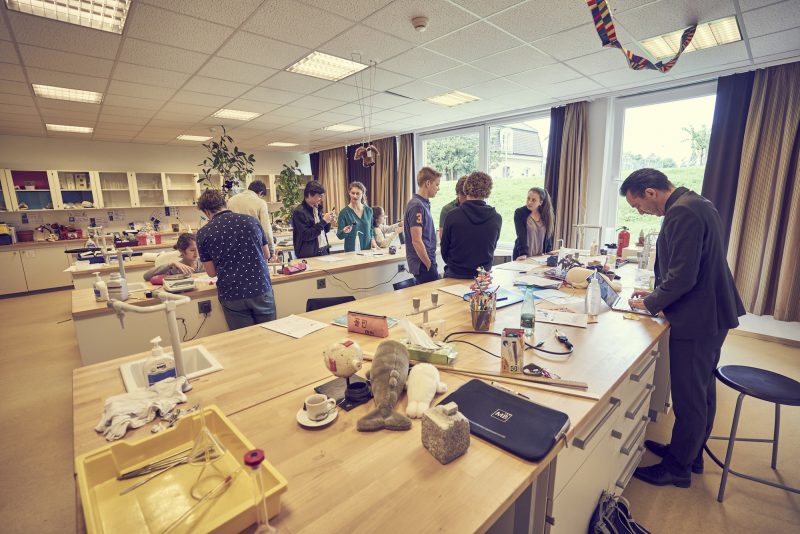
Dormitories are shared between two, but students change roommates three times a year due to the winter term in Gstaad. In their final year, some students have an individual room but share a bathroom with one other student.
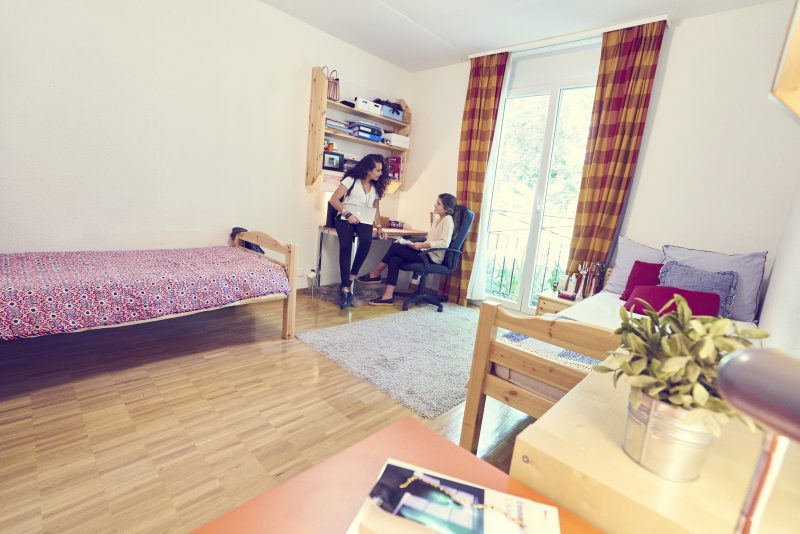
About 60% of the 150 teachers also live with the students.
The views from some of the dorms are stunning.
http://instagr.am/p/BL1PkjNhIcC
On an average day at the main campus, students are woken up at 7.00 a.m. and head down for an informal buffet breakfast and check-in.
http://instagr.am/p/tM2AnARTCG
During the 'academic block,' students must wear 'comfortable and correct' clothing. This means shirts should be tucked into trousers, skirts and dresses should be 'reasonably long,' and tops must cover midriffs and shoulders.
http://instagr.am/p/BP3AGLzApI1
Leather coats, denim jackets, sports wear, high heels, "revealing, transparent, or provocative clothes," and t-shirts are not allowed.
Outside of academics and dinner, "casual" or sports wear is allowed.
For formal school events, such as parties and conferences, students wear the school uniform. For boys, this consists of a navy blue blazer, Rosey badge, white or blue shirt, school tie, grey trousers, and black shoes. Girls wear a navy blue blazer, Rosey brooch, white dress, school scarf, and sandals or town shoes.
http://instagr.am/p/4cMxEUw34f
There are some other pretty strict rules at Le Rosey. For example, students shouldn't speak with their hands in their pockets, and must stand if an adult they are conversing with is also standing.
Classes take place from 8.00 a.m. to 12.20 p.m., with a mid-morning traditional break for hot chocolate. After lunch, classes resume again at 1.30 p.m. until 3.30 p.m.
http://instagr.am/p/BQvJXytBcx3
With 150 teachers, the average class has fewer than ten students. However, their lessons aren't all in a standard classroom. Here, junior students learn about plants and gardening.
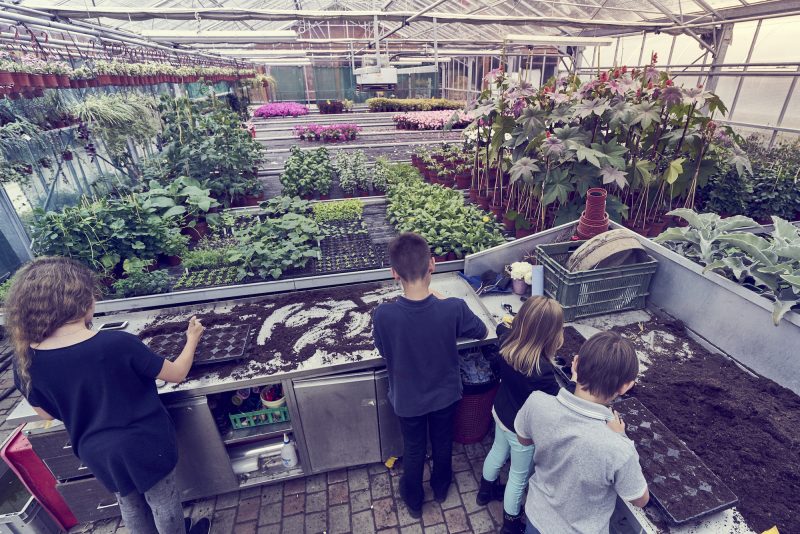
"It's a small enough community than you are actually able to get to know the majority of [the students]," Laurent said.
Between 4 p.m. and 6 p.m., it's time for sports and arts. The Paul & Henri Carnal Hall is the school's Arts & Learning Centre, where there are three orchestras, two choirs, three theatre groups, photo studies, and opportunities to get involved in dance, art, and gastronomy.
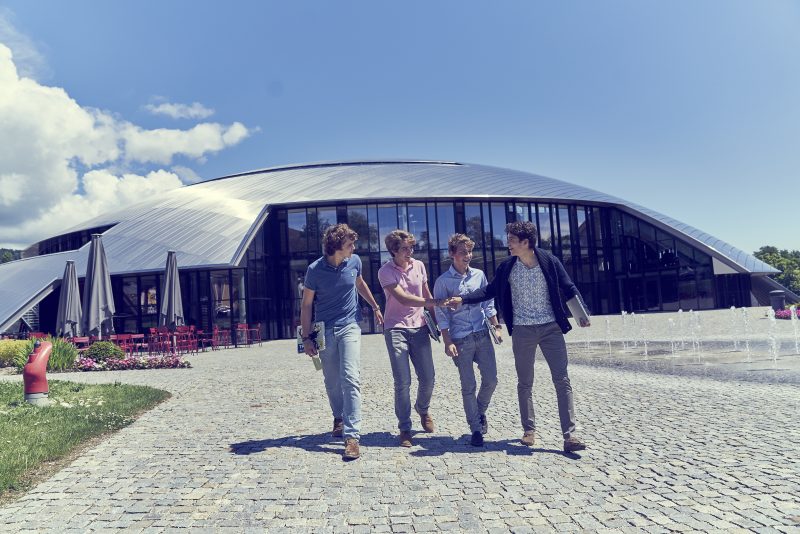
Over 60% of the school’s students play an instrument or sing, and participate in the school’s orchestra, chamber orchestra, choir, or individual rock bands.
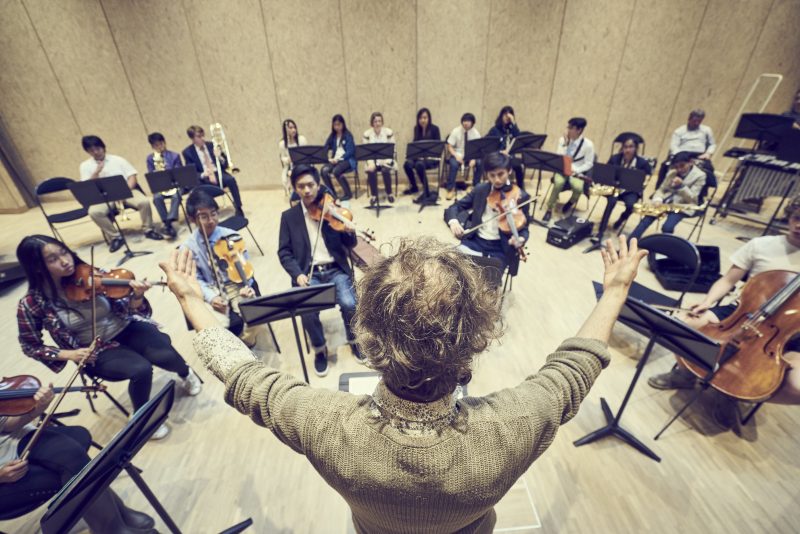
The Rosey Concert Hall seats 900 people.
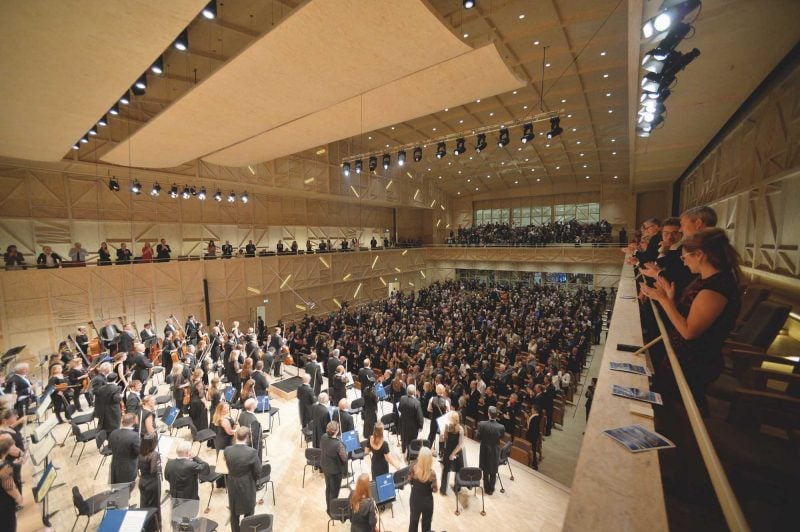
When not hosting Philharmonic orchestras, theatre plays or concerts, it is used by the students, where they can perform on stage in front of their peers and families during the school’s events.
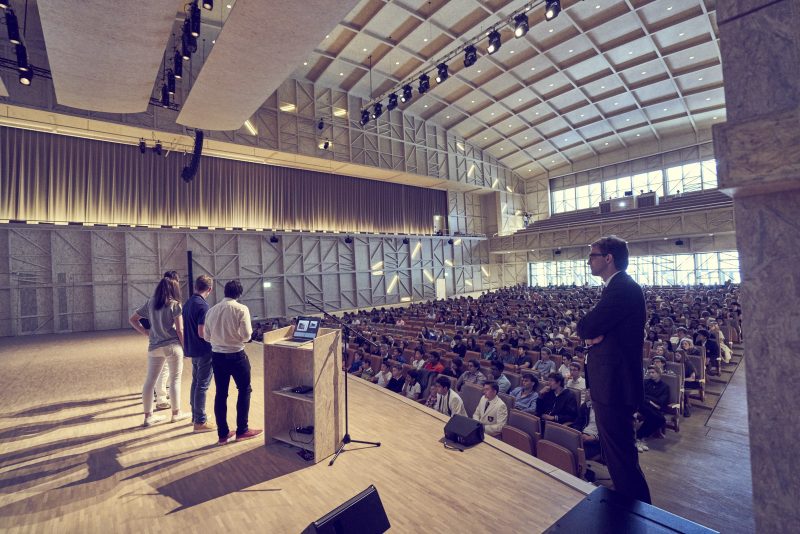
Sports are also a major part of day-to-day life at Le Rosey — the school offers over 25 different sports every year. There are football and rugby pitches, an athletics track, basketball, beach volleyball, and tennis courts, and two fitness rooms.
http://instagr.am/p/vojeUyjA15
Below, you can see the private riding stables, which have 20 horses.
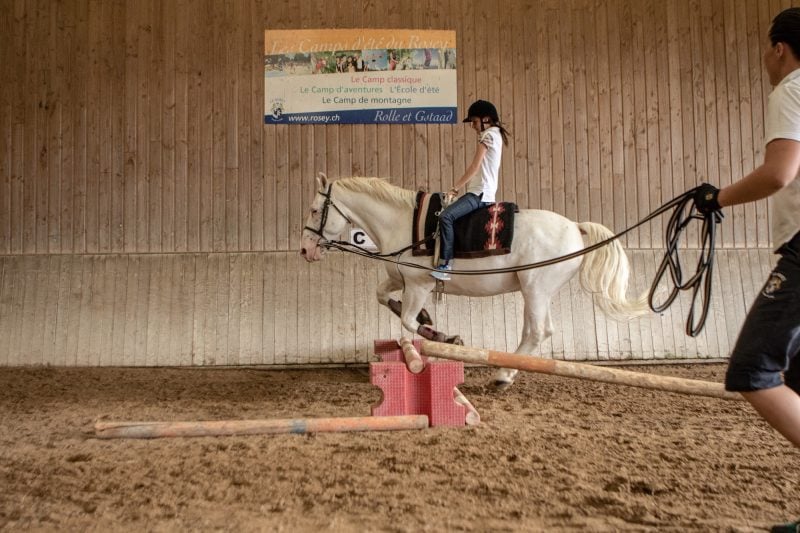
The school's nautical centre on Lake Geneva has a sailboat, rowing boats, and four motor boats for water-skiing. There's even a spa for kids to 'unwind' in.
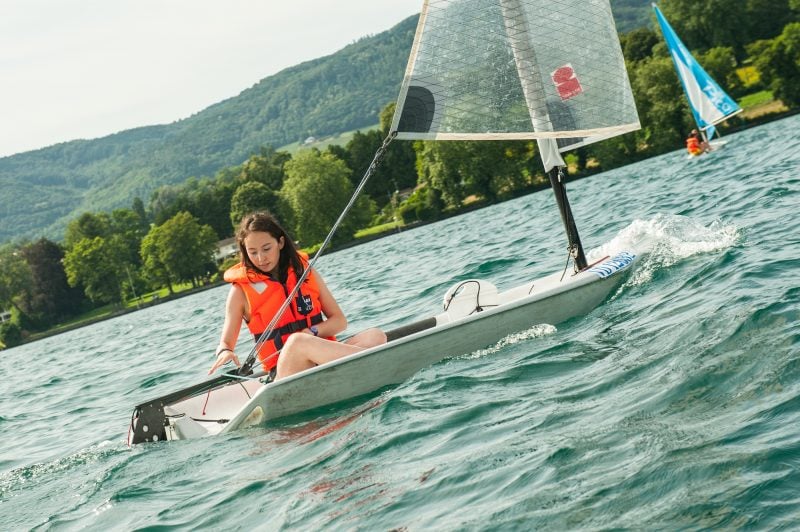
The spa has an indoor pool, a sauna, and a hammam, which students and teachers can use on Sundays.
Rowing is a pretty big deal.
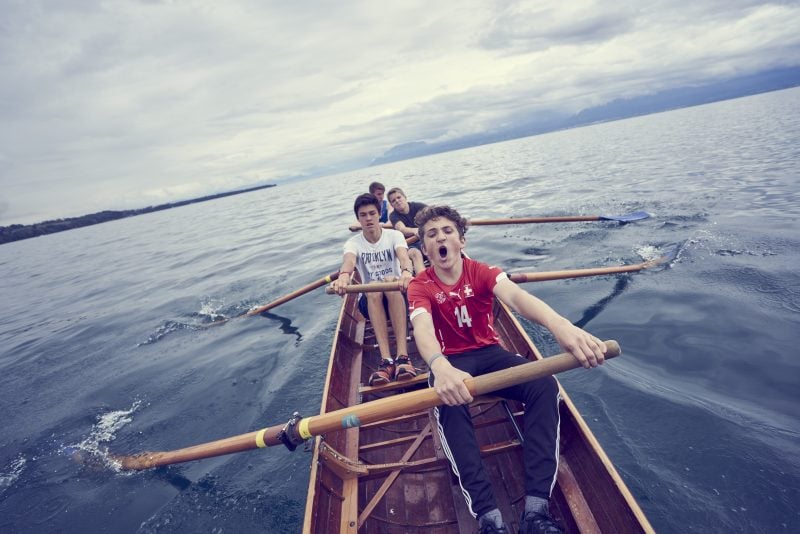
The school took the title of Swiss Rowing Champions in 1951...
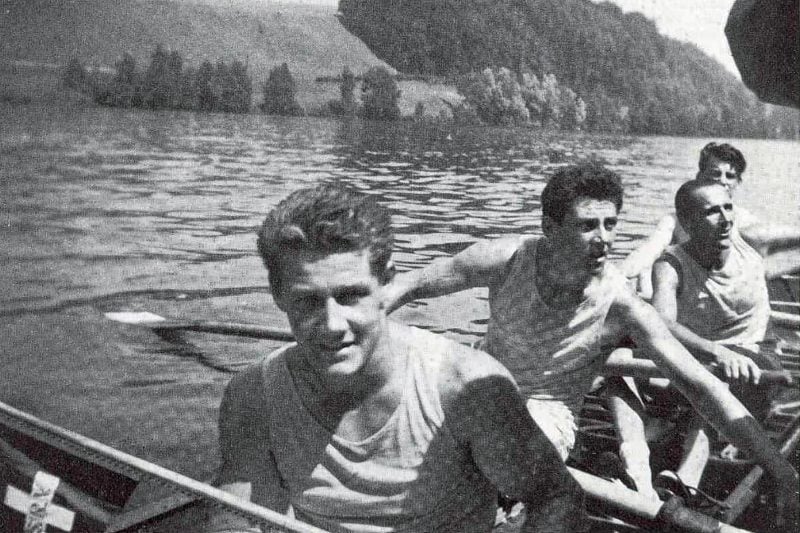
...and ice hockey winners in 1948.
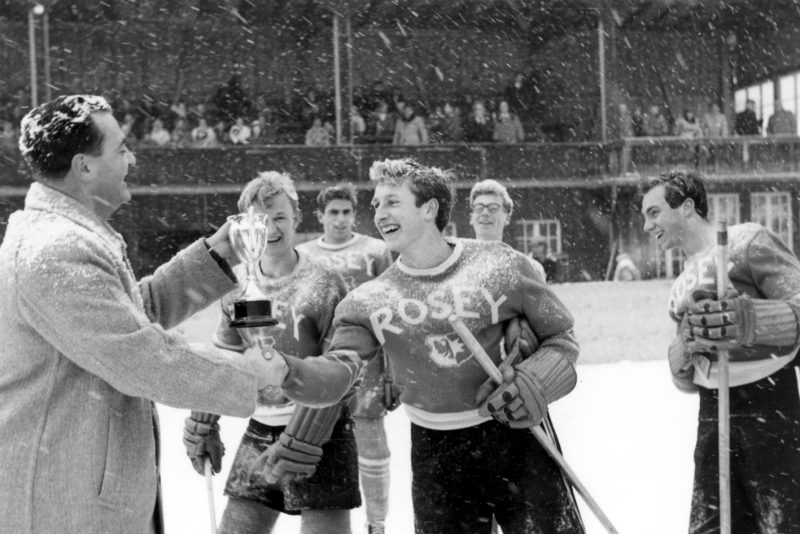
Hockey is still big on the winter campus.
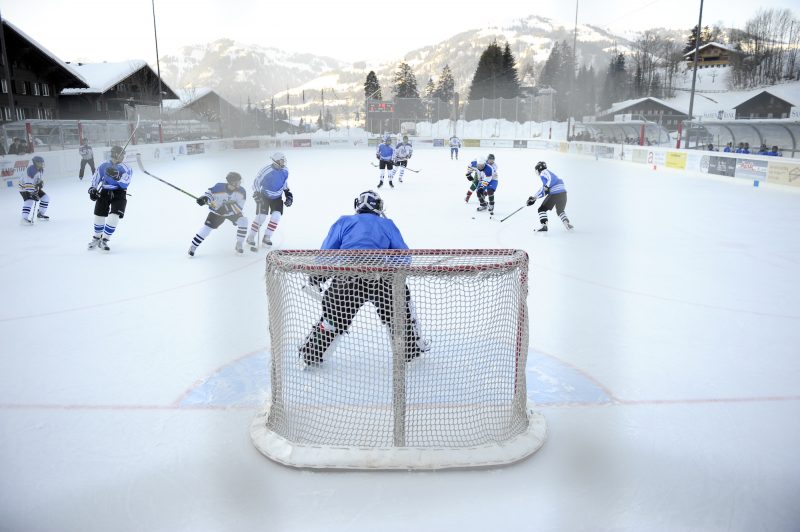
Finally, after students have worked up an appetite (and participated in a short study hall), dinner — which is a formal affair — is served at 7.30 p.m. All meals are prepared by in-house chefs, and the students act as waiters on a rotation system.
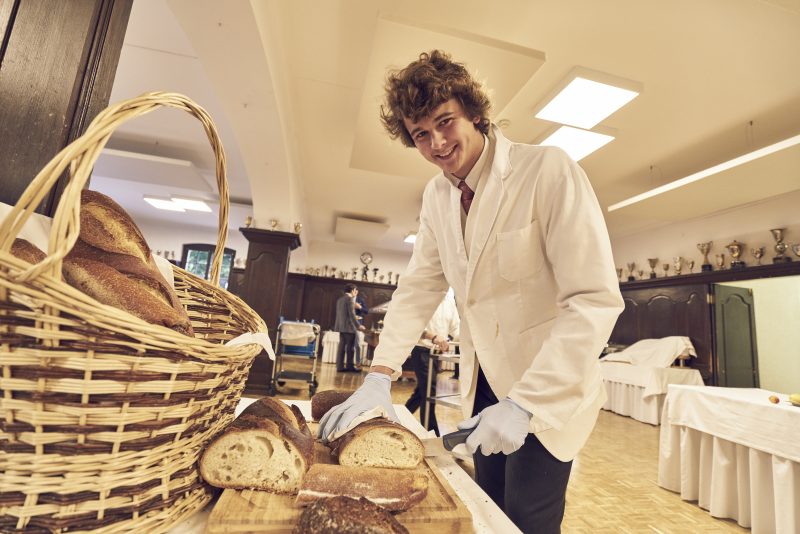
For dinner, boys must wear a shirt, tie, and jacket. Girls wear a Rosey blouse and jacket.
Students must sit in a seat marked by a personal napkin which is fixed for the entire term. They rise when an adult arrives, and don't leave the table until invited to do so by the director of boarding.
http://instagr.am/p/BVE0J5wlP6S
They must use Swiss table manners, which means eating with a straight back, elbows off the table, and by lifting the food to the mouth rather than moving the head closer to the plate.
Students may not possess or consume alcohol on or off campus during the week, or on school expeditions at the weekend. Exceptions are made for parties 'organised by and in the company of a teacher' where 'wine may be consumed.' This includes wine-tasting sessions organised by the school.
http://instagr.am/p/8yv9Tvgic0
Smoking is also not permitted, even off campus.
The time after dinner is usually dedicated to another study hall and homework, but there are often 'culturing outings,' dinners, lectures, debates or challenges. Phil Collins even played last year.
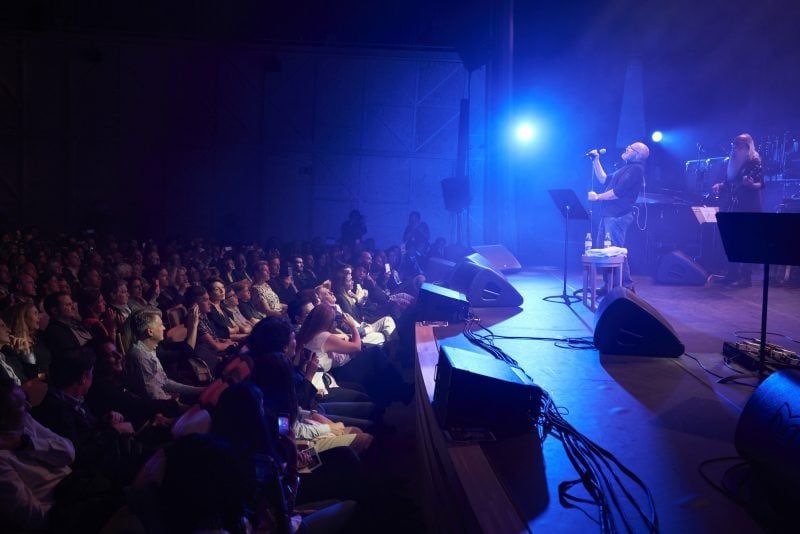
Bedtime is between 9 p.m. and 11.30 p.m according to age. Being found on the 'étage' (floor) with 'a person of the opposite sex,' and 'excessive demonstration of affection,' are both considered to be offences.
http://instagr.am/p/BHIxLpIjfBT
Students' weekends are even scheduled for them.
http://instagr.am/p/BKdU5R_BCWH
At the Rolle campus, they can sign up for afternoon activities like bowling, go-karting, the cinema, or going shopping in Geneva, accompanied by teachers. Sunday is much the same.
Students don't stay at the school during holidays - instead, they go home to their families or on organised trips.
Despite the wealthy — and often high-profile — backgrounds of its students, Laurent says the children are living a 'normal life.'
http://instagr.am/p/yhYPQ4qJ9u
"Of course we are an expensive school, of course the families need to have the means to be able to come to this school. So you would think that we would perpetrate that. That our students maybe would only be talking about their luxury cars, or their homes, or their planes... But in fact, it's not.
"It's about them just being normal children. And they're going to talk about heartbreak, and they're going to talk about Lucy who made out with Jack. They're just going to have a normal life."
"And it doesn't mean we don't help them understand that they do come from privileged backgrounds. And that with that privilege, comes responsibility."
Part of this means teaching them the importance of humanitarian work.
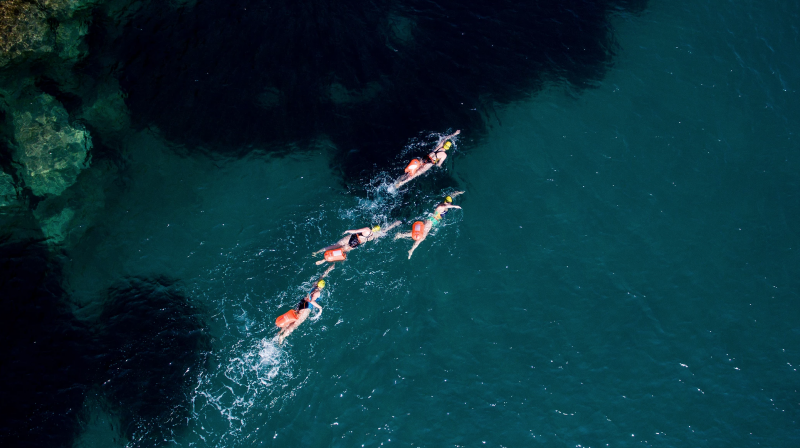
Last year, two female students went to Ghana with their English teacher and visited a hospital, where they met a large number teenage girls who had suffered from obstetric fistula because of their births at a premature age, or in complicated circumstances.
When the girls returned, they decided to swim the English Channel to raise awareness about obstetric fistula and raise money - over CHF 100,000 (£80,979) - to be able to donate to the hospital where these girls can receive the reparation surgery that they need.
Laurent says students are recognised for who they are, rather than who their family is.
http://instagr.am/p/BHH34fWBnNK
"For a student at that age, when they're a teenager, those families will find it refreshing. And it's true that for many of them it's sort of being treated like a normal kid for the first time. I think that you develop an attachment to that."
Ultimately, the school says it is all about building leaders of all kinds.
http://instagr.am/p/2xiRSxDA05
"It can be leaders in the humanitarian domain, it can be leaders in philanthropy, it can be leaders in the art world, it can be leaders in the scientific world, leaders in whatever way you want to describe them," Laurent said.
"But leaders that are able to have innovative ideas, that are able to think on the spot, and that are able to make those ideas happen. You know, not just daydreamers, but real and convincing and concrete ideas that they have the power and the ability to make happen."
And it seems that a Le Rosey student never truly graduates.
http://instagr.am/p/BQqDaYyFu1H
With a 5,000-strong alumni association worldwide, Laurent said that the school's former students "kind of have this longing that our time at Rosey was a beautiful time in our lives."
"It is a place where dreams can happen," he concluded.
